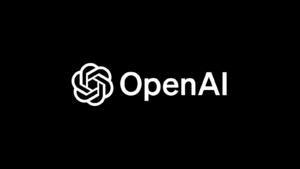Artificial Intelligence (AI) is revolutionising industries, offering businesses unparalleled opportunities for automation, decision-making, and customer experience enhancement. However, the rapid and sometimes unchecked deployment of AI technologies creates challenges and conflicting business outcomes.
Unregulated AI introduces benefits and risks that can impact everything from productivity and revenue to brand reputation and ethical standards. Without clear regulations, companies may experience a mix of advantages and drawbacks, highlighting the need for careful management and oversight of AI systems.
Enhanced efficiency but risk of over-automation
One of AI’s most significant benefits for businesses is its ability to improve operational efficiency. Automated processes, predictive analytics, and machine learning algorithms can reduce repetitive tasks, streamline workflows, and accelerate decision-making. For example, AI-powered chatbots like those used by companies such as H&M and American Express allow customer service teams to handle a high volume of queries simultaneously, improving response times and customer satisfaction. However, over-relying on AI for customer interactions can backfire if the technology is unregulated.
AI systems may fail to provide the empathy and nuanced understanding necessary in customer service, potentially leading to customer dissatisfaction or alienation. The risk of over-automation, without human oversight, could result in a business losing the personal touch that sets it apart, leading to conflicting outcomes where efficiency gains come at the cost of customer loyalty.
Innovation acceleration but increased security vulnerabilities
AI can drive innovation by helping businesses create personalised products and services, analyse customer preferences, and predict market trends. Netflix, for instance, uses AI to recommend shows based on viewing history, while Amazon uses machine learning to personalise shopping experiences. However, unregulated AI can also expose businesses to increased security risks.
AI algorithms often require large amounts of data, which can become a target for cyberattacks if unprotected. For example, in 2022, a significant healthcare provider experienced a data breach due to vulnerabilities in its AI-driven systems, exposing sensitive patient information. Unchecked AI usage may leave companies vulnerable to data theft or breaches, creating a situation where the risk of financial and reputational damage from data mishandling tempers the benefits of personalisation and innovation.
Enhanced decision-making but unintended biases
AI enables data-driven decision-making, which can improve efficiency and outcomes in areas such as hiring, marketing, and product development. For example, AI tools used by LinkedIn help recruiters match candidates with job openings, enhancing hiring efficiency. However, AI systems may inadvertently perpetuate biases embedded in their training data without regulation.
Amazon, for instance, discontinued an AI recruiting tool after it turned out to discriminate against female applicants. Unregulated AI in hiring or promotion decisions could lead to discriminatory practices that violate ethical standards and equality policies, resulting in conflicting effects: streamlined decision-making on the one hand and potential reputational and legal consequences on the other.
Cost savings but potential job losses and workforce disruption
Cost reduction is another compelling advantage of AI. Automating routine tasks can reduce labour costs, allowing businesses to allocate resources more effectively. Manufacturing companies like Foxconn have used AI to streamline assembly lines, resulting in significant cost savings. However, this efficiency comes at a potential human cost.
As AI replaces certain jobs, businesses may face workforce disruptions, declining employee morale, and public backlash. Large-scale job displacement can create a negative image for companies, casting them as contributors to rising unemployment. This phenomenon creates a paradox where social challenges may offset AI’s cost-saving benefits, potentially harming the company’s reputation and consumer perception.
Improved customer insights, but privacy concerns
AI allows businesses to collect and analyse customer data to understand behaviours, preferences, and purchasing patterns. Companies like Google and Facebook use AI algorithms to offer targeted advertising based on user data, helping businesses connect with audiences more effectively. However, the unregulated use of customer data raises significant privacy concerns. In 2018, Facebook’s data-sharing scandal with Cambridge Analytica underscored the risks of unchecked AI-driven data analysis.
Customers are increasingly concerned about how their data is collected, stored, and used. If businesses fail to protect consumer privacy adequately, they risk regulatory fines and a loss of customer trust. In this context, AI-powered customer insights become a double-edged sword, as valuable information comes at the potential cost of damaging privacy concerns and trust.
Unregulated AI disruption in business presents a complex landscape of benefits and risks. While AI can drive efficiency, innovation, and customer insights, it also brings challenges such as security vulnerabilities, biases, workforce disruptions, and privacy concerns. These conflicting effects highlight the need for balanced regulations and responsible AI usage. By implementing ethical standards and oversight, businesses can maximise AI’s benefits while minimising its potential downsides, creating a sustainable approach to innovation that protects stakeholders and promotes long-term growth.





